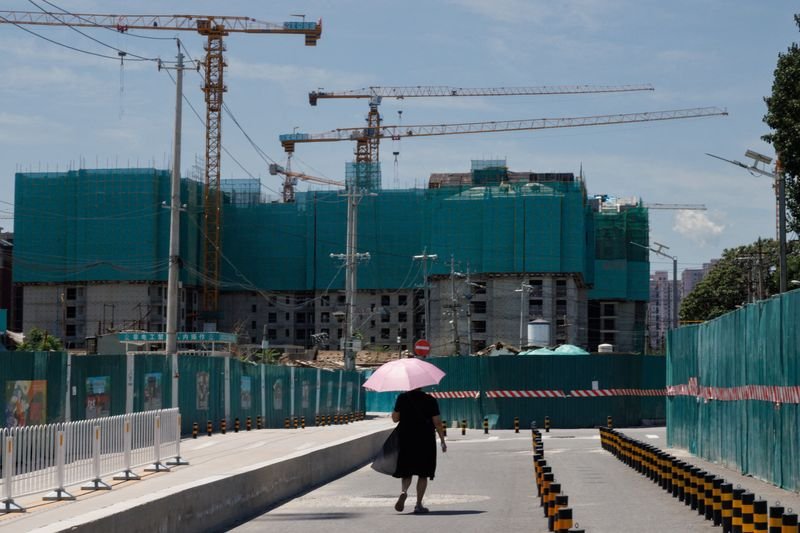© Reuters. FILE PHOTO: A woman walks near a construction site of apartment buildings in Beijing, China, July 15, 2022. REUTERS/Thomas Peter
BEIJING (Reuters) – Chinese new-home sales rose more than 20% year-on-year over the three-day New Year holiday starting from Dec. 31, due to promotions, support policies taking effect and the gradual release of pent-up demand after high COVID-19 cases.
Among 22 cities selected by the China Index Academy, the average daily floor area of homes sold rose 27.1% from last year’s holiday season.
“Home buyers’ visits to housing showrooms increased in some cities,” said the academy. “Pent-up demand due to the impact of the epidemic in December was released during the New Year’s holiday after the infection passed its peak in some cities.”
The firm also said major cities such as Beijing and Shanghai saw a rise in sales compared with last year’s New Year holiday but sentiment remained at low level in most small cities.
Compared with last year’s holiday season, home sales rose 80% in Beijing, 74% in Shanghai and 131.5% in Guangzhou.
China’s property market crisis worsened in 2022, with official data showing home prices, sales and investment all falling in recent months, putting more pressure on the faltering economy.
Policymakers have ramped up support for the industry in a bid to relieve a long-running liquidity squeeze that has hit developers and delayed completion of many housing projects, further undermining buyers’ confidence. The moves included lifting a ban on fundraising via equity offerings for listed property firms.
New-home prices in the 100 Chinese cities monitored by the firm fell 0.02% year-on-year in 2022, the first decline since 2015, the real estate research firm said.
Home transactions fell nearly 40% year-on-year in 2022, the lowest since 2015.
“For 2023, home sales likely grow slightly under optimistic expectations, while under pessimistic expectations, the market adjustment trend may continue with new housing construction starts and investment still facing downward pressure,” the firm said.
(This story has been corrected to change the year to 2023, not 2013 in the last paragraph)






